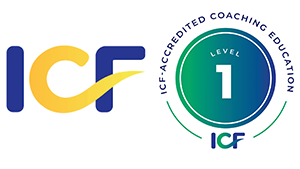Coaching supervision offers coaches an opportunity to access continuous professional development through reflection and dialogue in a safe, supportive and confidential space. If we look closer at the word itself: super-vision meaning over-sight, the practice of supervision is for the coach and their supervisor to reflect together and have over-sight of the coach’s practice in service of them being the very best coach they can be.
In this way, the function and scope of supervision cover three main areas.
Learning and Development
In this domain, the focus is on the continuous growth and development of the coach towards increasingly advanced competence. This aspect of the dialogue might focus on the ICF Core Competencies as well as other related theories, models and concepts that could be introduced into the discussion by either party. The focus is on the coach as a coach and their ongoing skill development as a practitioner. Mentor Coaching for Credentialing could be seen as sitting somewhere within this domain with regards to the specific focus on the ICF Core Competencies, however, the roles of Mentor Coach and Coach Supervisor are not always the same and the focus and training for each discipline is different.
Support
Coaching Supervision also provides support for the coach in terms of them feeling resourced, supported and nurtured. As such, the focus is on the person or the who of the coach; the coach as a person. In this domain, topics such as confidence, inner dialogue, helpful or limiting beliefs held by the coach might feature in the discussion.
Safety and Standards
This domain is centered around quality and professionalism. Here, the dialogue may reflect upon how the coach is managing their overall coaching practice, ethical considerations and the safety of the coach and their client, as well as having consideration for the system within which the coaching work is being undertaken. Here, the ICF’s gold standard and the core values of excellence, integrity, collaboration and respect are at the forefront of the reflective dialogue and the focus is on the coach as a professional.
Within the context of these three areas, coaching supervision is sometimes described as working with “where the personal intrudes on the professional” in that the focus is on ensuring that the coach does not get in the way of their client’s learning and development but is instead an enabling tool or vehicle for their client.
In practical terms, coaching supervision bears some resemblance to coaching in that the coach and supervisor need to establish that there is chemistry and rapport for them to work effectively together. They will contract with each other around how they will work and how similar boundaries of confidentiality are upheld. The focus of each supervision session will be clearly established and may be related to the above domains in the context of, for example:
- Case analysis (i.e., The coach’s work with a particular client or a particular session with a client)
- Patterns and themes that the coach is noticing about their coaching practice across their client base
- Observations that the coach is having about themselves within the context of their coaching practice
- Review of the ICF Core Competencies or other coaching-related materials and how they are being evidenced in the coach’s practice
- Exploration of the “who” of the coach
Sometimes, it can be helpful to frame the supervision topic as a question which the coach and supervisor then work collectively to answer. Some examples of supervision questions might be:
- I have a lot going on personally at the moment, how can I be sure that I am fully present for my clients?
- My client has told me they are being bullied, what are my responsibilities as a coach and how can I be of best service to them?
- I find myself getting very distracted and even impatient when coaching client A…. What can I learn that will help me be the best coach I can be for them?
- I am usually confident as a coach, however, when coaching client B…, I find myself feeling intimidated and trying to impress them, what is it that is triggering this response in me?
- I get so engaged in coaching my clients that I lose track of time and our sessions seem to end abruptly with no clear actions or forward movement, how can I manage the time better for a better ending to the session?
- My client shared something that really goes against my values and I’m finding it difficult to coach them without feeling negatively towards them, how can I resolve this?
- I have noticed that I am more verbose when coaching clients who are younger than me, what is triggering this and what implications does this have for my coaching with them?
These are just a few examples of the many, many questions that a coach might bring into supervision and the common feature of all of them is that the conversation is aimed at supporting the coach to be the best they can be in that situation and across their coaching practice.
Coaching supervision can be undertaken on a one-to-one basis or as part of a supervision group. This discipline requires specific training which will most likely cover at least one or more fields of (coaching) psychology as well as specific supervision models. A coaching supervisor is also most likely to be an experienced coach and also be self-aware and mindful of their own part in the coach-supervisor dynamic and relationship. For supervisors working with groups, an understanding of group dynamics and group development is needed as well as knowledge of group supervision processes and practices.
Purchasers of coaching services want to know that they are buying the best and knowing that a coach is in supervision can be a great way of demonstrating quality assurance, professionalism and integrity in one’s coaching practice. Indeed, in some communities, being in coaching supervision is now a prerequisite for being able to provide coaching services within certain organizations.
ICF recommends coaching supervision as a useful form of continuous professional development for coaches and is committed to conducting further research into its efficacy as it continues to build a sizeable body of work on evidenced based approaches that are in service of the best coaching possible.
Author Tracy Sinclair, PCC, is also a trained Coaching Supervisor, Mentor Coach and an ICF Assessor. Tracy trains coaches and works with managers and leaders to develop their coaching capability. She works as an international Corporate Executive and Board Level Coach, a leadership development designer and facilitator working with a wide range of organizations. Tracy also specializes in working with organisations to support them develop coaching culture. She was the President of the UK ICF from 2013-2014. Tracy is a 2019 ICF Global Board Director and Immediate Past Chair. Original post can be found here: https://coachfederation.org/blog/coaching-supervision









